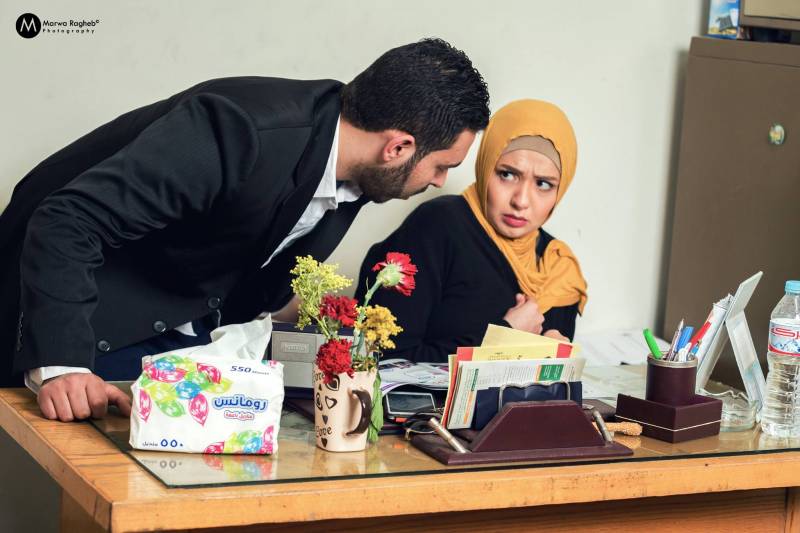In trying to lead an environmental lifestyle, over-reliance on a car would seem quite contradictory. Though aware of the fact that cars are the largest contributor to carbon emissions– and thus the target of advocacy campaigns calling for the use of more sustainable means of transport–for women in Cairo who are exposed to harassment on a daily basis, an alternative mode of transportation seems unattainable. The events of yesterday's march in celebration of International Women's Day serve as an irksome reminder of the endemic harassment prevalent on the streets Egypt.
One of the signs carried during the march read "the street is yours and mine." But women’s fight for safer streets free of sexual harassment continues to be an uphill battle.
Ranya, an Egyptian-American participant in the women’s march admits that she uses her car for 95 percent of her travel within Cairo; she compares this with her choices in New York, where she is able to walk or use public transport.
“I would have liked to do the same here or ride a bicycle, but I cannot because of safety," she said. "I deal on a daily basis with different forms of harassment. I hate the constant fear and anticipation." Though aware of the negative environmental impact from using her car so frequently, for Ranya the choices are overshadowed by security concerns.
Business entrepreneur Yousra, who works close to Mar Girgis metro station, admits she rarely uses this as a mode of transportation. "If I take the metro I have to be alert most of the time, and spend extra time in the morning carefully choosing the clothes I would wear for the day."
Like Ranya, she is aware of the environmental benefits of public transportation, but prioritizes her safety. "Of course I know that by taking the metro and using public transportation my contribution to carbon dioxide emissions would decrease but I would not jeopardize my safety for it," she said.
Some however, are trying to challenge these boundaries. Sarah, a graphic designer and environmental activist, uses the metro and rides her bicycle whenever an opportunity presents itself. "I cycle on weekends with friends and on weekdays I stick to my neighborhood where people have started to get used to seeing me and my bicycle."
Without safer streets where women are free to run errands on foot, walk to metro stations or ride bicycles, a large number of Egyptian women will continue to forego a reduced carbon footprint out of fear for their safety.




